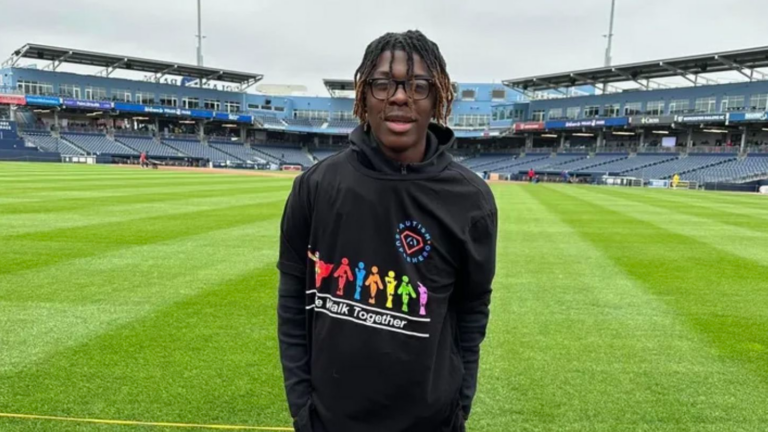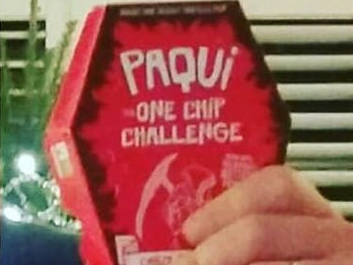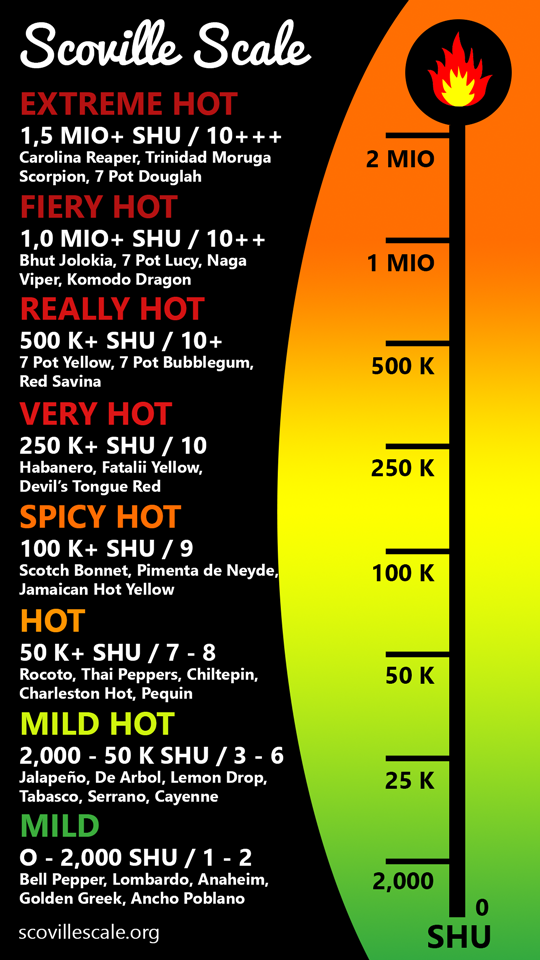Family believes Worcester teen died from ‘complications’ after participating in viral ‘One Chip Challenge’
Food News
The cause of 14-year-old Harris Wolobah’s death has not yet been confirmed, but he reportedly ate the spicy Paqui Chips’ product at school before going home sick the day he died.

The family of a 14-year-old Worcester boy who died Friday believes he died from health “complications” after he participated in the viral “One Chip Challenge,” which involves eating a super-spicy tortilla chip.
In a GoFundMe to benefit the family of Harris Wolobah, his cousin wrote that Wolobah “passed away unexpectedly at the age of 14 from what we suspect to be complications due to the ‘one chip challenge’ (autopsy pending).”
“The pain our family is experiencing is unimaginable,” the cousin wrote.
The One Chip Challenge dares people to eat a Paqui Chips product made with super-hot peppers and see how long they can last without eating or drinking anything afterward. They are encouraged to film their experience and post the video to social media.
The Hershey Company, whose subsidiary owns Paqui Chips, did not respond to a request for comment Monday evening.
Harris Wolobah’s death
On Friday, Worcester police, paramedics, and firefighters responded to “a Rustic Drive address for a medical call involving a fourteen-year-old boy” around 4:30 p.m., Worcester police said in a statement when asked about Harris’ death. They found the boy unresponsive and not breathing.
First responders took the boy to a hospital where he was pronounced dead, police said. The Chief Medical Examiner has accepted the case and will determine the manner and cause of death.
Police said they would not confirm the victim’s identity due to privacy issues.
Worcester school officials confirmed to The Boston Globe that while attending school on Friday, Harris began feeling ill and went to the nurse’s office. He was then reportedly released early so he could go home with his parents.
Harris’ mother, Lois Wolobah, told NBC10 Boston that a classmate gave him the chip at school, and that he suffered a bad stomach ache as a result. He felt better when he got home, she reportedly said, but as they were about to leave for basketball tryouts, his brother discovered that he’d fainted.
The One Chip Challenge
The social media challenge — featuring a chip made with “two of the hottest peppers currently available” — launched in 2016 as a promotion by Paqui Chips. It became popular on TikTok in the last few years, with videos with its hashtag garnering over two billion views.

The challenge had a resurgence in popularity last fall, and schools around the country reported sending students to the hospital after they participated in it. Some schools banned the chips in response.
Despite the challenge’s popularity with school-aged children, the webpage about the challenge warns that the chip is “intended for adult consumption.” This is because the peppers used to make the chips contain the chemical capsaicin, which makes hot peppers spicy but can also be dangerous.
The challenge website also warns against eating the chip if you are sensitive to spicy foods; allergic to peppers, nightshades, or capsaicin; or have any medical conditions. It advises seeking medical attention if you have difficulty breathing, feel faint, or experience extended nausea after eating the chip.
One Chip Challenge dangers
The National Capital Poison Center warns that people who participate in the challenge often experience “mouth irritation, pain, or burning, along with intestinal discomfort.
“Capsaicin consumption can also cause more serious health problems, including chest pain, heart palpitations, and even heart attacks,” the poison center’s website reads. “Consumption of larger amounts of capsaicin can also cause repeated vomiting that can lead to life-threatening esophageal damage.”
While the challenge only asks participants to eat one chip, each chip contains a significant amount of capsaicin, the heat from which is measured in Scoville Heat Units, or SHUs. Up to 2,000 SHUs is considered mild, while the hottest level is over 1.5 million SHUs.
While the chip itself has not received a Scoville rating, Paqui Chips wrote on its website, the company uses Carolina Reaper peppers, which are around 1.7 million SHUs, and Naga Viper peppers, which are around 1.4 million SHUs, to make the chip.

Remembering Harris Wolobah
According to Worcester Public Schools, Harris was a sophomore at Doherty Memorial High School in Worcester.
“Harris was a light that lit up the room with his presence and subtle charm. He was an intelligent, quirky and incredibly talented young man who loved video games and playing basketball!” his cousin wrote on his funeral service GoFundMe page.
Douglas Hill, Harris’s basketball coach, told WCVB that the student was “so coachable.
“I could tell him whatever and he was going to take it and apply it to whatever he needed to apply it to,” Hill said.
Superintendent Rachel Monárrez called Harris “a rising star” in a statement Sunday.
“As a mother and educator, I cannot imagine how hard this is on his family, friends and teachers. My heart goes out to all who knew and loved him,” she wrote.
The school is offering grief support to students in the wake of Harris’ death, the superintendent said.
Two years ago, an Amherst teen died in a similar incident that stemmed from a viral TikTok challenge.
Newsletter Signup
Stay up to date on all the latest news from Boston.com
Originally posted 2023-09-05 00:47:05.